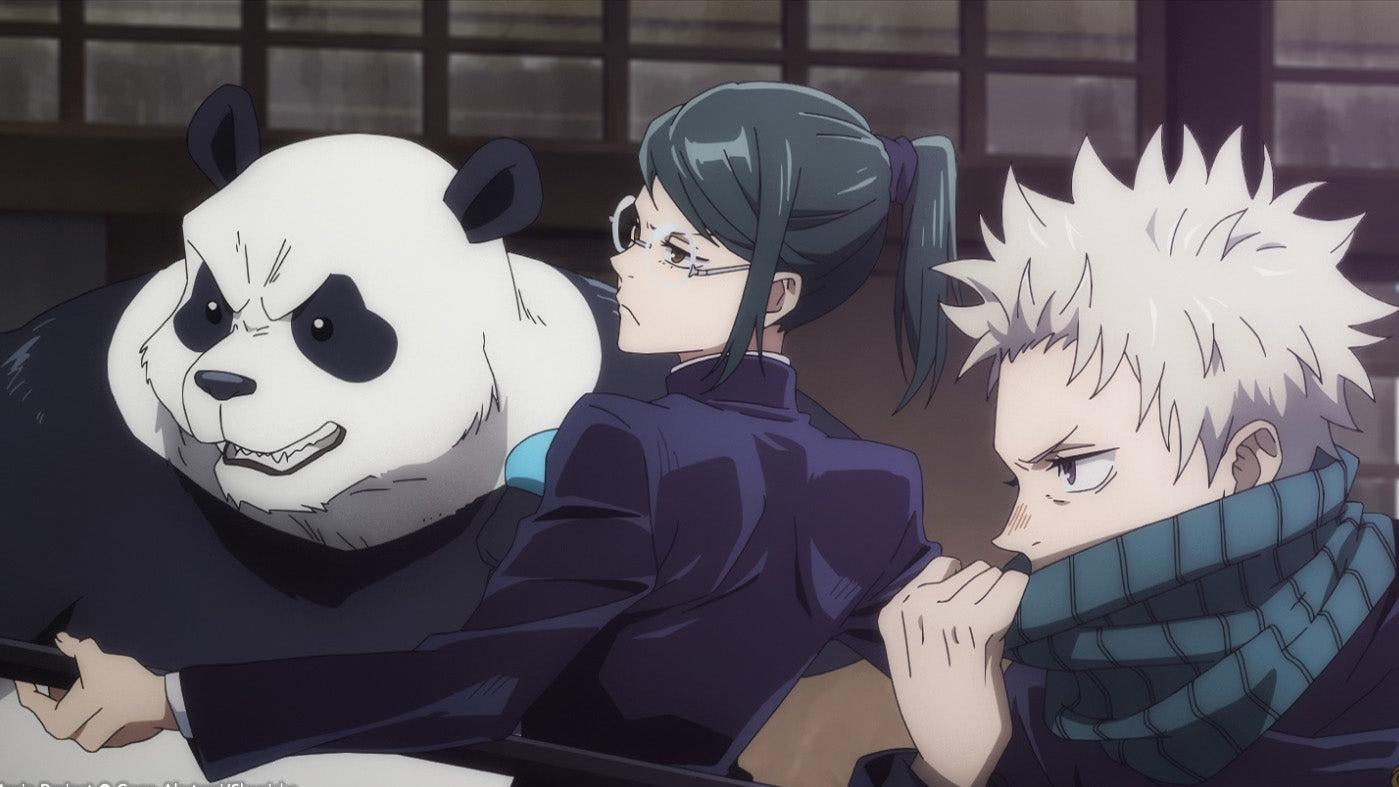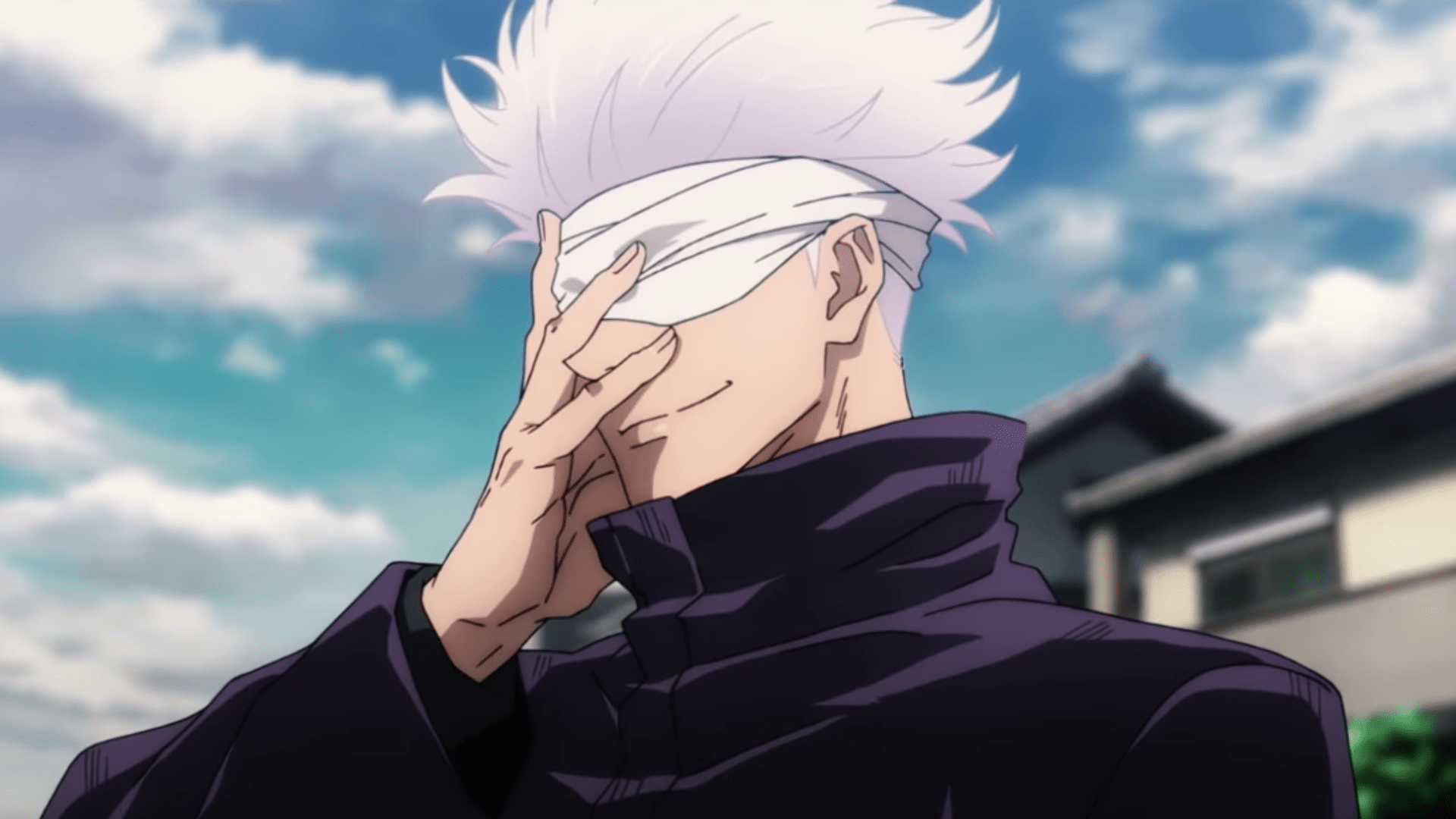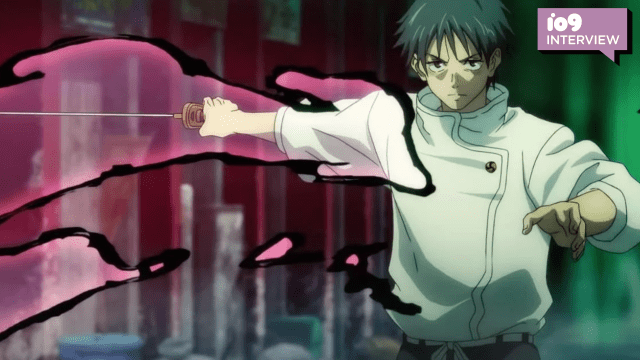In just a single season, MAPPA’s adaptation of Jujutsu Kaisen managed to have one of the best debuts in recent years, with a highly anticipated second season due next year. That success has now been translated into the upcoming U.S. theatrical release of Jujutsu Kaisen 0, a prequel that aims to provide a new viewpoint on the supernatural world born from Gege Akutami’s 2018 manga. The film released in Japan late last year and became a smash, breaking box office records and forcing theatres to expand their original limited screenings.
Jujutsu Kaisen 0 treads some of the same ground as the main anime — a teenage boy discovers that Japan is filled with malevolent spirits called Curses, and joins the ranks of the Jujutsu Sorcerers who exorcise them — but shifts the main character from charming meathead Yuji Itadori to Yuta Okkotsu. An extremely shy and constantly anxious boy following the death of his childhood love Rika, Yuta finds that his childhood friend has herself since grown into a powerful Curse that ruthlessly attacks anyone who tries to harm him. 0 is origin story for Jujutsu Kaisen with a more emotional, romantic core than these tales usually have, and luckily, Yuta won’t be alone as he begins to truly adjust to his unusual situation.
Several of Jujutsu Kaisen’s heroes we’ve met in the show already, it turns out, become major players in Yuta’s journey. Sporting slightly new looks and maybe a bit rougher around the edges than how fans were introduced to them back in season one (after all, they are younger and less experienced), these fan favourite Sorcerers — the weapons expert Maki Zenin, Cursed speech user Toge Inumaki, a literal Panda named Panda, and their foolish mentor Satoru Gojo — are a welcome presence throughout the film and make up some of Jujutsu Kaisen 0’s best moments. Plus Yuta will need all the help he can get, since the evil Sorcerer Suguru Geto is being brought over from the show as well.
Ahead of Jujutsu Kaisen 0’s theatrical release in the west later this week, Gizmodo talked to the newcomers of Jujutsu’s English cast, Kayleigh McKee (Yuta Okkotsu) and Anairis Quiñones (Rika Orimoto), along with its veterans — Allegra Clark (Maki Zenin), Matthew David Rudd (Panda), Xander Mobus (Toge Inumaki), Kaiji Tang (Satoru Gojo), and Lex Lang (Suguru Geto) — about the newest addition to the hit series.
Justin Carter, Gizmodo: These characters — Maki, Inumaki, and Panda — were mostly used as comic relief back in season one. How’s it feel getting the space to be more fleshed out and carry some heavier material?
Allegra Clark: Getting to play all the levels of Maki was really fun. In the first season, she’s played for comedy, but she’s also more serious of the three of them. There’s so much more anger in her here in the movie, and playing the earlier parts of her arc before she gets to loosen up were so interesting to do.
Xander Mobus: I love the dynamic that these three have in the show, and we all got these little moments to hint at what was going on underneath. They’re all very goofy, but they’re still powerful Sorcerers, so it was fun just going balls to the wall for the film.
Matthew David Rudd: Panda’s role is so different from the others, since it’s more of a nurturing role. He’s very big brother or fatherly, just a responsible person hat you can rely on. And isn’t just translating for Inumaki, he’s emotionally translating what characters can’t express and making sure Yuta feels comfortable in this group. He’s kinda like the coach in junior high. [laughs]

Gizmodo: It’s interesting that you say that, Matt, because Panda feels exactly the same here as he does in the series. Maki and Inumaki have meaty moments with Yuta, but Panda doesn’t. Do you think he needed a solo adventure to have a bonding moment with Yuta?
Rudd: I’ve got so much affection for Panda, and I love that he’s there to keep everyone afloat. He’s here more for emotional development rather than the physical, and he’s got moments with every character. It’s what he does in the show too; with Nobara [in episode 16], he takes a hit that would’ve killed her. In this movie, he doesn’t care if he lives or dies, he’s just here to protect his friends. I love that about him.
Clark: This class of kids is so interesting because you’ve got a kid who can barely speak, one who’s a bit of a dick, and… Panda. Oftentimes, Panda is comic relief, but underneath it all, there’s so much warmth and caring. When you see him go full protector, it feels like a full culmination of who he is.
Gizmodo: Kayleigh, Anairis, as the leads of the movie, the relationship your characters have drives everything happening in the film. How was it having to do this romance that’s both genuine and idyllic, but also deeply messed up for the both of them?
Kayleigh McKee: To portray it on my end with Yuta was really interesting. He’s got such conflicting feelings, and he doesn’t really know what to do with himself! I feel like he’s both happy and scared that Rika’s there, so it’s a battle within, both about her and himself. He still carries that survivor’s guilt.
Anairis Quiñones: For me, I’m a huge fan of psychological things. It was really fun to figure out what the dynamic was between Rika and Yuta, and it says a lot about how much they cared for each other. I think that the film does a real good job of exploring their relationship, both in terms of how Yuta embraces her and is sometimes terrified of her, and how Rika herself responds to that.
Gizmodo: More than anything, JJK 0 is a love story, and shonen anime doesn’t always do romance well. To you, what is it that makes a great shonen romance?
Quiñones: What really makes a shonen romance for me is the lengths that one character will go to for another, or more interestingly, what they’ll do for each other. So many shonen protagonists will go on a grand adventure for the person that they love, but the partner doesn’t get much.
McKee: It’s a complexity of character. The knowledge of how they got to where they are more than them just thinking that they’re cute before they wind up together. Having something more than that, like the care between two people really showing and they accept those traumatic incidents really gets to me. Even though Rika’s a child, there’s still a play between them and a complexity between their interactions. It’s both very compelling and sweet, as well as kind of sad to see.
Gizmodo: Even with Rika hanging around him, Yuta’s probably the most normal person in this universe. But he’s talked up as a big deal in the anime, and is expected to become pretty powerful down the road. What was your approach in keeping him relatable despite all that?
McKee: I knew characters had a certain energy when Yuta was mentioned, and when we first started recording lines, I could see that he’d start to come into his own. I was very interested in exploring that, but also making sure his evolution was as organic as possible. He’s a traumatized teen, and he knows he’s got a ghost protecting him and killing people. Going from that to learning that he can protect people kicks off something inside him gives him some hope for his own situation. Connecting with the other characters at Jujutsu High helps give him a new semblance of normal, and he starts to think that he can have a new life for himself.
Gizmodo: Kaiji, Lex, this movie peels back some of the history between Gojo and Geto. But the reason for the fallout between the two men won’t be revealed until season two, what was it like exploring their relationship in reverse order?
Kaiji Tang: It’s been… interesting. You don’t get a lot of insight on their relationship in season one, but now that it’s being introduced through the film, both the audience and us as actors have a better understanding about the whole story about Gojo. Geto’s been such a present force in the story so far, and once you recognise his ideology and viewpoint, and how it conflicts with how tight he and Gojo used to be, it’s really heartbreaking.
Lex: Geto’s in a different state of being for the series, and so for the film, we get to see him as he’s filled with life. Because he’s very ideological, you get a better sense of what he believes in, where he was disappointed in life, and where his life took a turn. There’s a few flashbacks where you discover what his and Gojo’s relationship is made out of, and how they were best friends at Tokyo Jujutsu High as classmates. You see how their previous experiences together really define where they are in the timeline of the film.
Gizmodo: Your characters are both incredibly powerful, but most of the fighting is done by their allies respective followers rather than themselves. Geto’s actively assembled followers, but Gojo just happens to be an instructor whose students are somewhat obligated to follow him. What is it about your respective characters that you think that makes Yuji, Yuta, Mahito, and so on so willing to follow them?
Tang: [laughs] Yeah, Gojo’s one of the most powerful Sorcerers in the world, nearly a messiah figure. But to the kids, he’s just a below average teacher, and it’s just the funniest thing in the world how they treat him with such disrespect!
Lang: Speaking for Geto, I would say that he’s got good intentions, but he’s really flawed. His ideology has taken him on a path outside of compassion and empathy. As a viewer, you can kind of relate and want him to get back on track. It’s touching because we connect with our hearts to what they’re going through. He’s not trying to be a villain, he’s just overwhelmed by his ideology because he’s been hurt and disappointed by humanity so many times.

Tang: For Gojo, I think being born with a crazy amount of Jujutsu energy made it hard for him to connect with people, he was basically in Gojo World. It’s a pretty lonely life, and when you come across another character on the same level, of course you’re gonna connect with them! Really powerful characters always draw a certain sect of people. I feel like a lot of their magnetism comes from the fact that they’re larger than life, but it can also isolate you. And that’s what makes Gojo’s split from Geto all the more tragic.
Both of these guys are two sides of the same coin: Geto thinks he’s correct, and Gojo thinks he’s correct. Ultimately, it ends up being worse for both of them, but that’s the weakness of personality and ego that they share with everyone. Being so rigid in life rarely rewards you in the end, and I think we see that play out for both these characters.
Jujutsu Kaisen 0 releases in theatres on March 18.
Editor’s Note: Release dates within this article are based in the U.S., but will be updated with local Australian dates as soon as we know more.
